Premature Greying: Causes, Prevention & Treatment
May 17, 2023 | By Maria
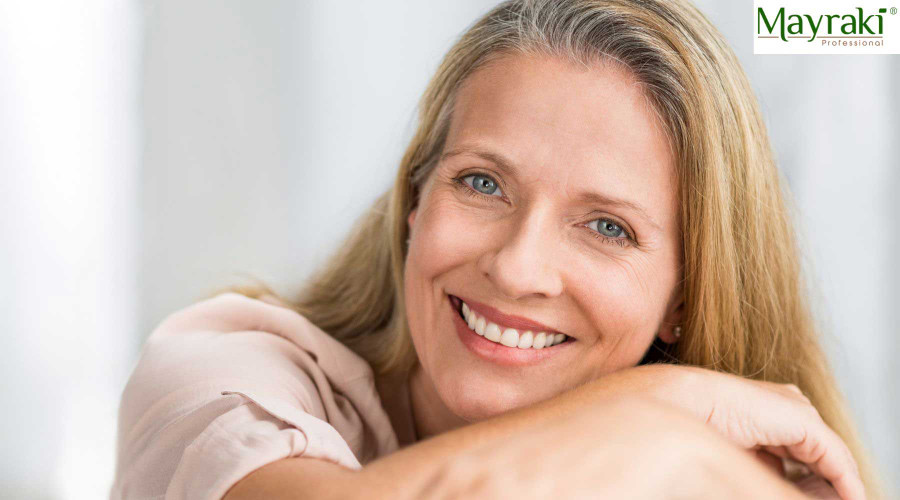
What is Premature Greying: Causes, Prevention, Treatment, and Common Questions Answered
Gray hair is a normal change that the body goes through as we age, just like wrinkles, age spots, and many more signs of aging. It’s nothing to be alarmed or ashamed about. Most everyone gets gray hair at some point in their life eventually, it just means you’re entering another chapter.
With that said, some people do get gray hair earlier in life. While there may be several causes for this, it’s unusual for this to happen, and if it does, it should be addressed properly, as it can be a sign that something in your lifestyle needs to change.
This condition is called premature greying. In this article, we’ll talk about the causes, prevention, and treatment of premature grey hair and answer some questions you may have about it.
What is Premature Greying?
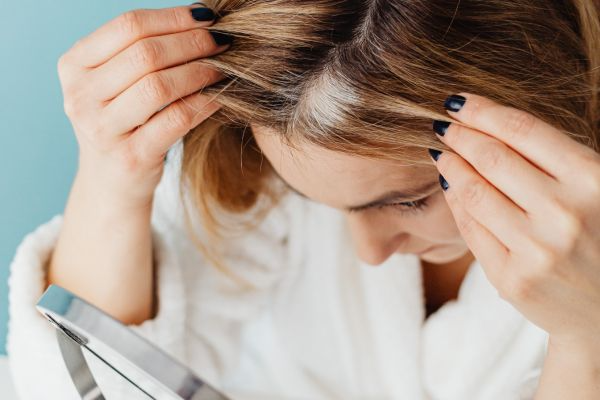
Premature greying refers to the condition where a person’s hair turns gray earlier in life. People as young as teenagers can get premature greying which is way younger than what is considered to be normal. If premature greying happens, there may be some underlying issues that need to be addressed.
What Causes Premature Grey Hair?
There can be several reasons why premature greying can happen, and it really depends on a person’s lifestyle, genetics, medical condition, diet, and habits. You can refer to our simple guide to help you figure out what might be causing your premature greying.
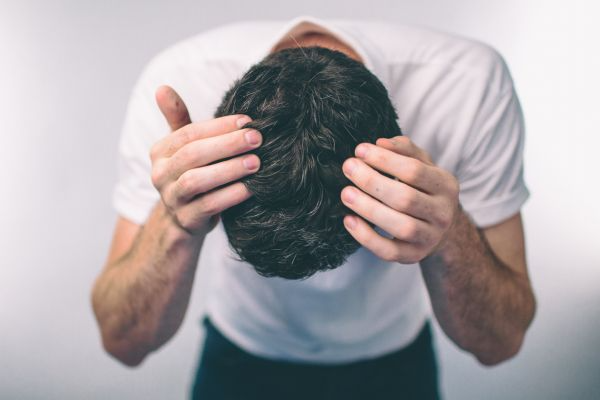
Vitamin Deficiency and Premature Graying
Deficiency in certain vitamins and minerals can cause premature greying. Vitamin B12 deficiency, in particular, is linked to premature graying. This vitamin is essential for the process of pigment production at the bulb of the hair. Pigment is what produces the natural color of your hair, and the more pigment or melanin there is, the darker the hair. When the body lacks vitamin B12, it results in premature graying of the hair because pigment production is halted.
Premature greying can also be caused by something called oxidative stress. This is when the body is deficient in antioxidants or if there are too many toxin-inducing factors in your life. Oxidative stress not only causes premature gray hair, but it also causes premature aging in general.
Smoking
Smoking is one of the top causes of premature gray hair. Studies show that smokers are 2 ½ times more likely to go gray as early as their 20s. Smoking can also cause or worsen oxidative stress that also contributes to premature aging.
Genes
Some people go gray much earlier in their lives because it’s simply in their genes. While premature greying can be considered as such when going gray in your 20s, some people can go gray as early as their teen years. If you’ve seen any relatives of yours going gray young, there’s a chance that you’ve inherited that gene. Lucky for you, this usually means that nothing wrong is going on health-wise.
Stress
Besides smoking, stress is another top cause of premature graying of hair. After all, there’s a reason for the famous saying, “You’re gonna make me go gray!”
Stress is a complicated thing to manage, and it can manifest in a thousand different ways in the body, including making you ill and messing with your overall appearance. One of these effects is premature greying. When the body is under a lot of stress, pigment-producing cells in the scalp decrease resulting in gray hair.
Hair Damage
Bleaching, chemical processing, relaxing, heat styling, and other damaging processes can also be the cause of gray hair. Doing too much or not properly taking care of the hair after these damaging practices can take a toll on the hair and eventually cause it to die and halt pigment production.
Medical issues
Underlying medical issues can also cause premature greying. If you suspect this, it’s important to consult a medical professional to get the appropriate treatment.
Can Premature Graying be Reversed?
Premature graying can be prevented and reversed by making a few changes. Here are a few tips on how to do that:
Up your nutrients

Vitamin deficiency can be easily managed by increasing the amount of nutrients that you consume. You can do this by either researching nutritious foods that contain the nutrients that you need or including supplements in your diet that contain these nutrients. Either way, maintaining a healthy diet and taking your vitamins is essential for general and overall hair health.
Quit smoking
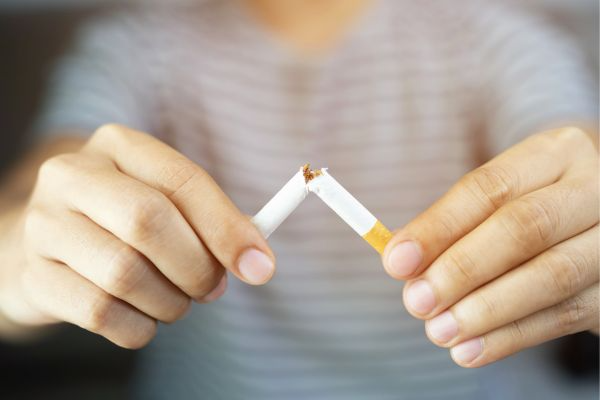
If you still haven’t gone gray or have just gone gray, there is a chance that you can prevent or reverse this process by quitting smoking. You can give your hair and body time to heal and start normal processes again, such as melanin production.
Proper hair care
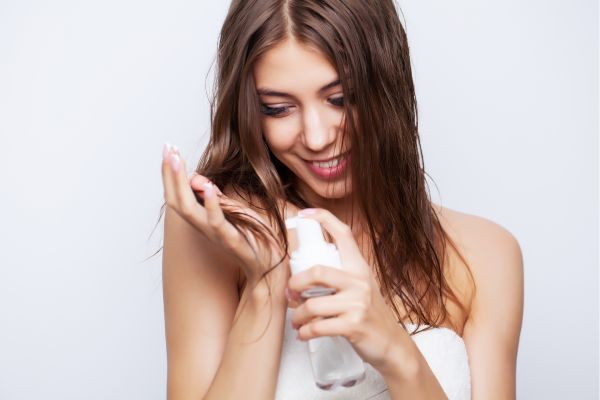
Lessening or foregoing harmful practices altogether can help quite a bit when it comes to preventing and reversing gray hair. Go au naturel and give your hair time to heal from all the damage, and you will notice that hair growth will start to increase and pigment will start coming back to your strands.
Anti-gray hair product
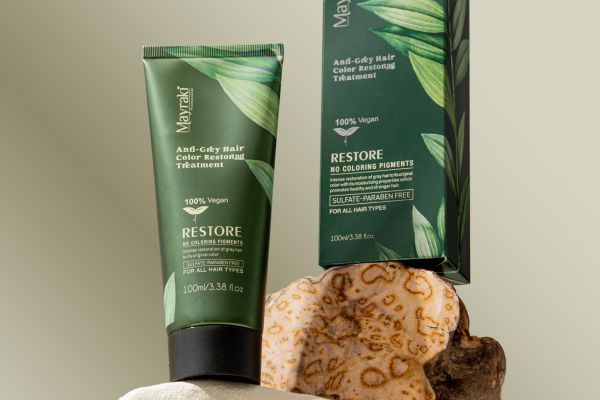
There are also anti-gray hair or gray hair reversing products out in the market that can help boost melanin production in the scalp. The Mayraki Anti-Grey Restoring Treatment uses an ingredient called polygonum multiflorum that has been proven effective at restoring pigment production at the bulb and turning the hair back into its original color.
Stress management
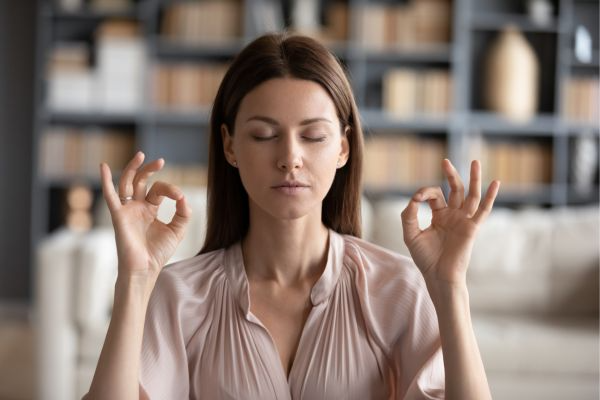
Knowing how to manage your stress can also go a long way in reversing premature graying. You can do this by taking some time to relax, do the things that make you happy, and hang out with loved ones.
What is the Average Age for Grey Hair?
Typically, hair starts to turn gray in your late 30s or early 40s if it’s related to aging. If you start turning gray in your 20s or even younger, it is considered to be premature greying and abnormal for that age.
Why am I Going Grey in my 20s?
Going gray in your 20s is considered to be premature greying. It’s too early to go gray at this age, and there are usually some other underlying causes for this to happen. Stress, vitamin deficiency, genetics, smoking, damage, lifestyle habits, and medical issues can be the causes of why your hair is turning gray in your 20s.
Is it Bad to Pluck Grey Hairs?
There is the old belief that plucking out gray hairs will cause more gray hairs to grow. This is nothing more than an old wives tale and a myth. However, it is also a damaging practice you should not do. This is because plucking your hair (gray or otherwise) can result in lasting damage to the hair follicle that can cause hair loss and thinning.
Prevention of Premature Greying
There are measures you can take when it comes to preventing premature greying. Lifestyle changes such as maintaining a healthy diet, managing stress, quitting bad habits, and lessening damage can all help prevent the appearance of premature gray hair and help regain its original color.
Science has also made it possible to have a helping hand in this. Products like the Mayraki Anti-Grey Restoring Treatment can help stimulate your melanin-producing cells and help you regain your natural hair color permanently.




